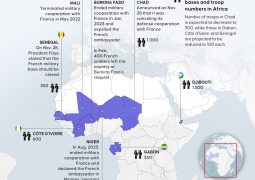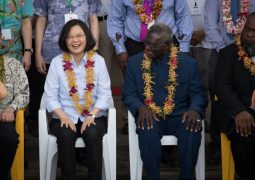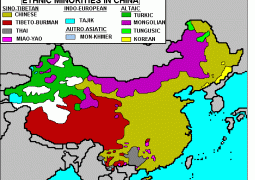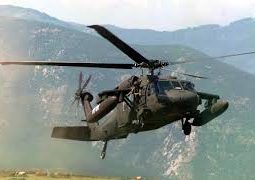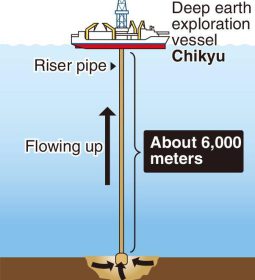Can Uzbekistan Build a Trans-Afghan Railway to Reach the Indian Ocean ports of Pakistan and Iran?
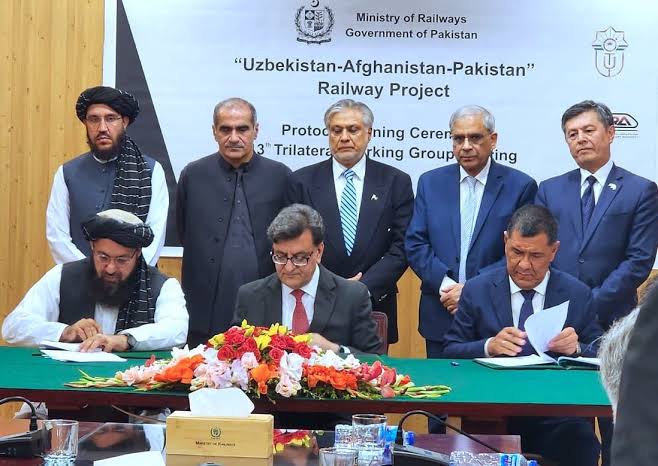

Image: TCA, Stephen M. Bland
For years, Uzbekistan has planned to gain access to the sea by passing through Afghanistan: The Trans-Afghan Railway is one of the country’s top transport projects. The railway could not only bring Uzbekistan to the sea, but also turn it into a transit hub connecting the north and south. However, no matter how promising the project looks, existing obstacles leave its fate uncertain. The Taliban has not yet established full control over Afghan territories, and many of its state assets are frozen. This leaves the construction costs to Uzbekistan and Pakistan. The Taliban government’s lack of recognition may also complicate attracting international institutions and companies to the project, even after its completion. So how realistic is Uzbekistan’s new Trans-Afghan railway project?
Why Is the Railway Needed?
Proposed by Uzbekistan in December 2018 for the first time, the Trans-Afghan railway project aims to extend Afghanistan’s rail network from Mazar-i-Sharif to Kabul, then to Nangarhar Province. The railway would cross the Torkham border and pass through Peshawar into Pakistan. Once in Pakistan, cargo would be linked to the Pakistani railway system, reaching the country’s seaports of Karachi, Gwadar, and Qasim. However, in July 2023, Uzbekistan, Pakistan, and Afghanistan finalized a different route: Termez → Naibabad → Maidanshahr → Logar → Kharlachi. This means the corridor will not pass through the Torkham border as originally described.
Now construction scheduled to start within five months, the railway is expected to handle up to 20 million tons of cargo annually and reduce transit time from Uzbekistan to Pakistan from 35 days to 3–5 days once operational.
Financial Obstacles
The line is planned to be 647 km long, with an estimated construction cost of $6.9 billion according to more recent Uzbek statements (though earlier estimates ranged from $4.6 to $7 billion). This figure remains subject to change until the final feasibility study is complete. Given Afghanistan’s complex ecological terrain, estimated costs could rise significantly.
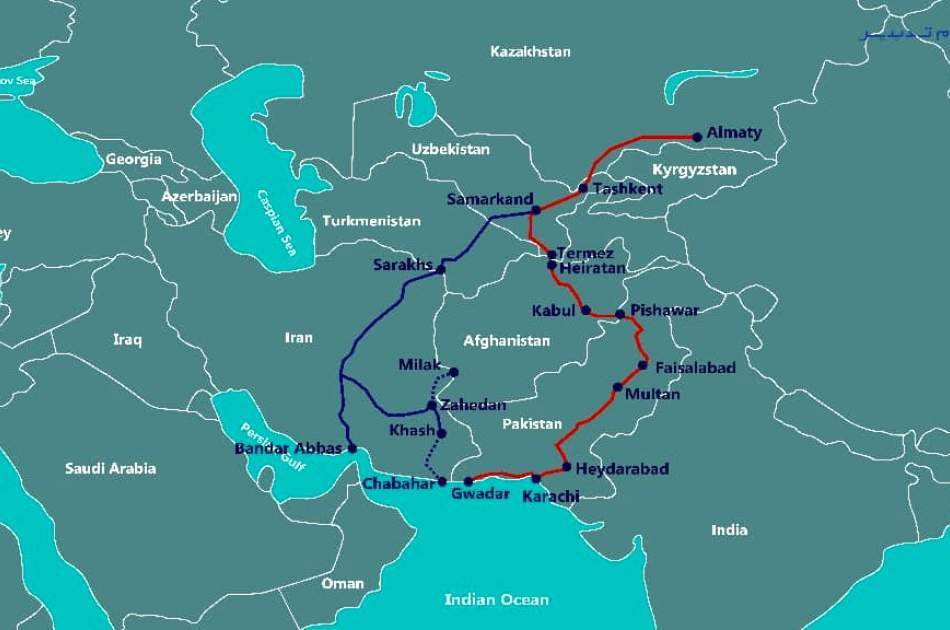
Pakistan has stated it would raise funds for the construction and financing of the part of the line to be built on Afghan territory. Observers believe the first issue to resolve before construction starts is the provision of security by the Taliban. Independent political analyst Yunus Sharifli argues that statements made by ISIS and threats targeting countries cooperating with the Taliban are further delaying construction.
“At present, the deterioration of Afghanistan’s security situation makes it even harder to secure credit lines with financial institutions. The Taliban continues to struggle to establish legitimacy in Afghanistan. Yet the country as a whole remains bogged down in ethnic conflicts,” Sharifli stated.
The Taliban’s policies toward women are also seen as one of the reasons complicating access to international financing mechanisms.
Multilateral financial institutions and donor states condition their support on certain governance principles. This has become one of the main challenges in securing financing and attracting Western investors.
Geographic Obstacles
Part of the line is planned to cross the Salang Pass in the Hindu Kush mountains at an altitude of 3,500 meters, making it one of the highest railways in the world. Observers note that the Salang Pass is prone to heavy snowfall in winter, which could leave the railway inoperable for long periods. For this reason, some argue that a tunnel under the mountains will also need to be built.
Such geographic and weather-related challenges could impose infrastructure limitations and increase delivery times. In particular, Uzbek journalist Yuri Chernogaev, who runs the Telegram channel “Na Vostoke ne vse kak kazhetsya” (“In the East, Not Everything Is as It Seems”), wrote that the region’s terrain poses a huge engineering challenge. The post questions whether it is realistic to build railways across mountains reaching up to 3,000 meters high, requiring 1,200 structures – including 360 bridges and tunnels totaling 70 km in length.
“Builders are especially focused on tunnels. The figures we are being told are absolutely unrealistic. Compare: Europe, with its advanced technologies, built the Gotthard railway tunnel in a much more ‘favorable’ location than the Hindu Kush, but it still took 15 years. Its length is 51 km, and its cost was $10 billion,” Chernogaev wrote.
None of the parties involved in the project has provided detailed information on how the announced total costs will be distributed or where construction sites will be located. However, some observers and activists speculate that the development will require much more funding than has previously been announced.
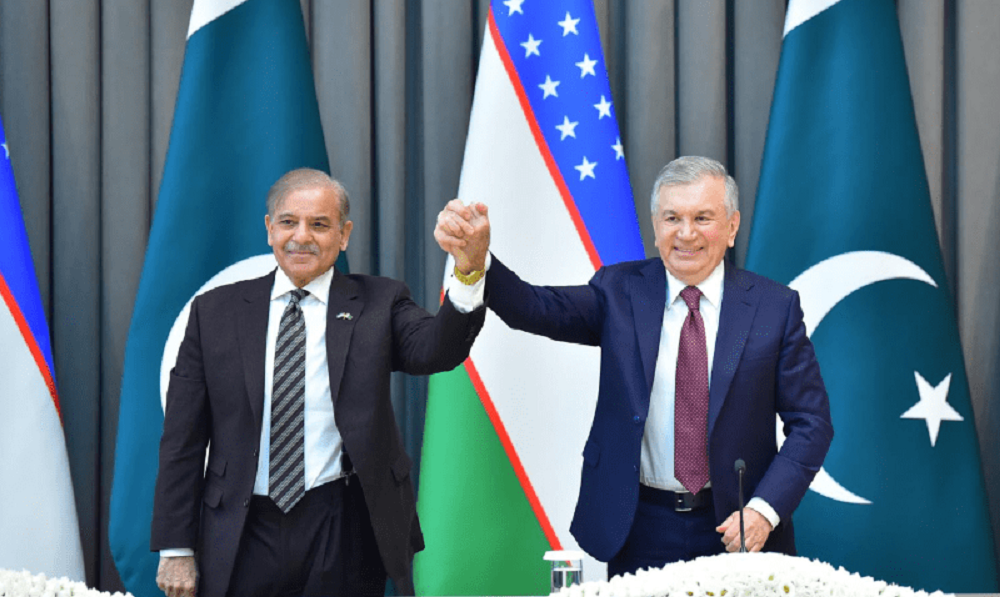
Nevertheless, the project is not limited to Uzbekistan, Pakistan, and Afghanistan. Although Western countries have not shown serious interest, other nations – particularly Russia – are paying special attention to its construction. But why does Russia, which has opposed Uzbekistan’s other transport projects, including the China–Kyrgyzstan–Uzbekistan railway, see this project as promising? What could the Trans-Afghan railway offer Russia, a country under sanctions? Still, Russia’s role so far has been mostly rhetorical. While Moscow expressed support and held talks in earlier years, it did not participate in the July 17, 2025, framework intergovernmental agreement signed in Kabul, which only included Uzbekistan, Afghanistan, and Pakistan.
Why Is Russia Interested?
According to some observers, Russia’s main strategic interests are expanding its influence in Central Asia and countering Western presence in the region. *While the European Union is seeking to build the Trans-Caspian corridor in the region, Moscow could use participation in the Trans-Afghan infrastructure project to strengthen its position as the main external power around Afghanistan.
The project, stretching from the far north to the far south, may also offer Central Asian countries an alternative to China’s Belt and Road Initiative,” Sharifli stated, emphasizing that the railway fits Russia’s broader goals, particularly at a time when the country is under international sanctions. “Economically, Russia views the Trans-Afghan railway as an opportunity to enter South Asian markets and open new trade routes. This railway would allow Russia to export energy, minerals, and industrial goods to Pakistan, India, and other South Asian states.”
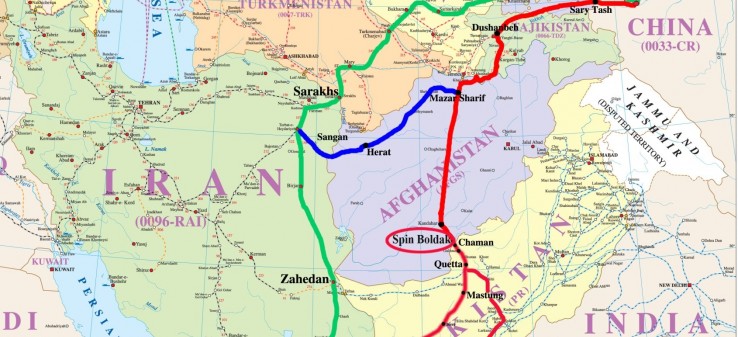
Moscow is one of the few major powers that has formal diplomatic relations with the Taliban and was among the first governments to remove it from the list of terrorist groups.
“By supporting infrastructure development, Russia can strengthen its position as a pragmatic partner ready to work with Afghanistan’s current leadership and secure long-term strategic advantages at a time when the West is staying away,” Sharifli says. He believes Moscow’s aim with this project is to maintain international trade, reduce the economic impact of sanctions, and strengthen its influence over Central and South Asia. In this way, Moscow seeks to establish a regional economic network independent of Western-dominated trade systems, he says.
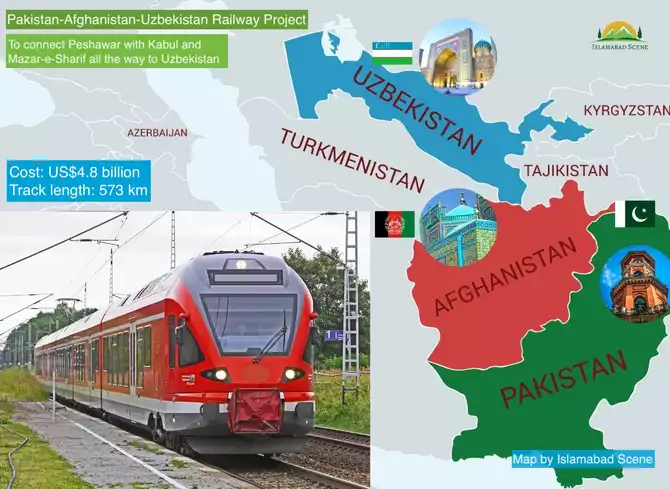
At the same time, Tashkent has also advanced other initiatives, including a broader Russia-Kazakhstan-Uzbekistan-Afghanistan-Pakistan transport corridor project, which began taking shape in 2023 and is now moving toward launch.
Can the railway be built?
Although discussions about the project have been ongoing for years, there is no open information about when the main phase of construction will begin or who will be accountable. In early July, Deputy Transport Minister Jasurbek Choriev told the Uzbekistan 24 TV channel that laying of the railway could begin within the next six months.
In reality, construction cannot begin that quickly. The six-month timeline applies to completing the feasibility study only. Afterward, Uzbekistan and partners will need to seek investors, form a consortium, and carry out other preparatory steps before physical construction could start.
“Before starting construction, we set certain deadlines between the parties. I think these deadlines are very short, but they include grand plans – we set six months. Normally, developing such projects takes one or two years,” Choriev said. However, no specific information about major international partners currently interested in the project was provided. On the contrary, Choriev stressed his hope that such interest would materialize after the project began.
“Considering the confidence of the parties in implementing this quickly, we want to accelerate the process. After this stage, we can present the feasibility study to other countries, show forecasts and potential, attract interest, and implement the project jointly,” Choriev stated.
Experts believe three decisive factors are required: attracting sufficient financing and technical expertise, achieving broader international recognition of the Afghan government, and ensuring security guarantees along the route.
In the short term – within the next 5 years – the likelihood of the project being implemented is low because security, financing, and diplomatic isolation create too many uncertainties,” says Yunus Sharifli. In his view, only if the Afghan government gains international recognition will the political and financial conditions necessary for the construction of the railway appear.
By Firdavs Zavkiev
- Previous 700 days of Israeli bombing destroys 90% of Gaza: 64,400 killed, 162,000 injured and $68 billion in damages
- Next China-Mongolia-Russia Agreement on Power of Siberia 2: Europe lost its sourse of garanteed energy supply for decades to come




